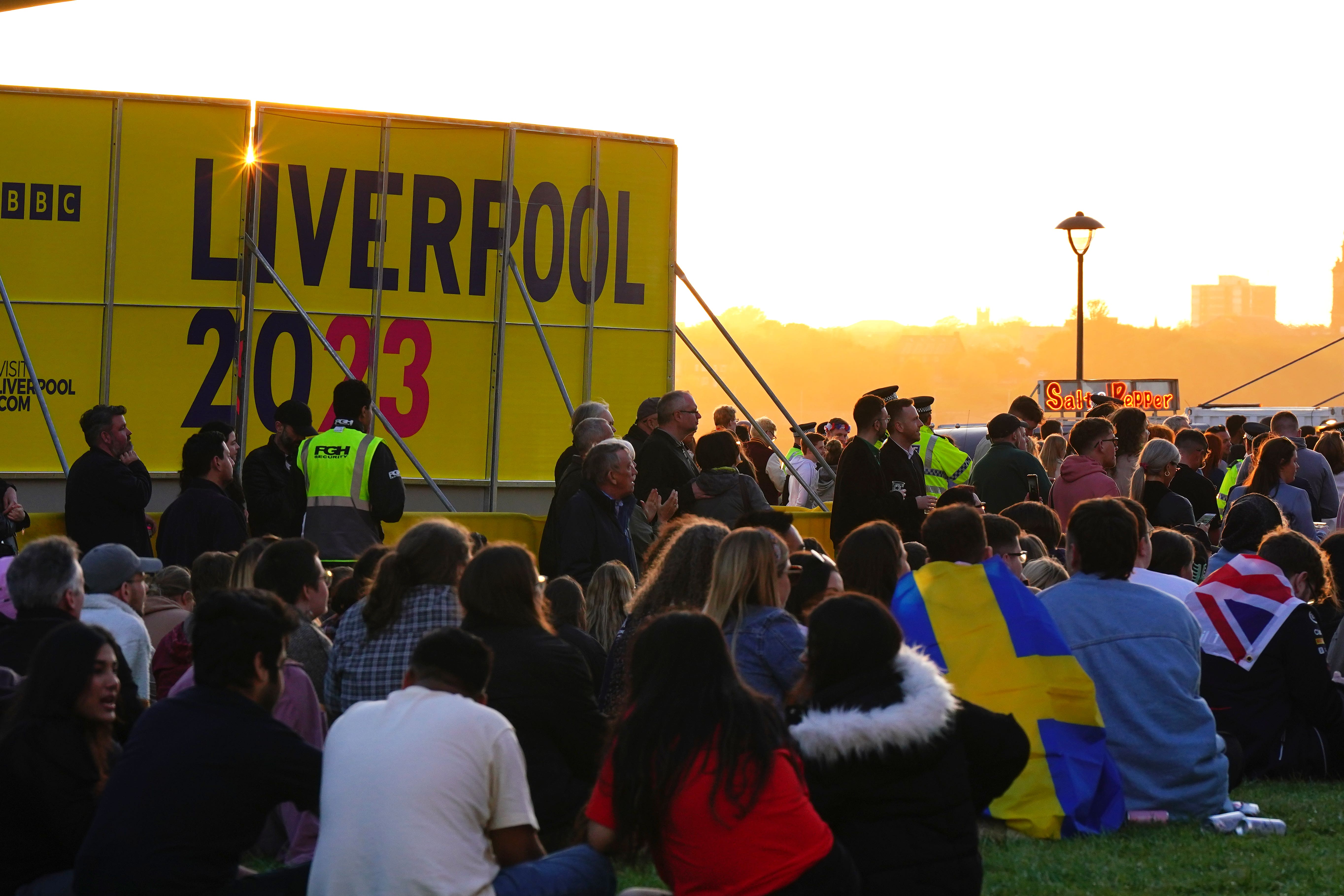TikTok ‘does not want to compete with BBC for Eurovision final viewers’
This year’s contest features a number of musicians with large followings on the social media platform.

Your support helps us to tell the story
From reproductive rights to climate change to Big Tech, The Independent is on the ground when the story is developing. Whether it's investigating the financials of Elon Musk's pro-Trump PAC or producing our latest documentary, 'The A Word', which shines a light on the American women fighting for reproductive rights, we know how important it is to parse out the facts from the messaging.
At such a critical moment in US history, we need reporters on the ground. Your donation allows us to keep sending journalists to speak to both sides of the story.
The Independent is trusted by Americans across the entire political spectrum. And unlike many other quality news outlets, we choose not to lock Americans out of our reporting and analysis with paywalls. We believe quality journalism should be available to everyone, paid for by those who can afford it.
Your support makes all the difference.TikTok does not want to compete with the BBC at Eurovision but instead “complement” and drive viewers towards its grand final coverage, a manager has said.
The social media platform has partnered with contest organiser the European Broadcasting Union (EBU) and the BBC for the event in Liverpool, with busker pop-ups around the city, special coverage and gigs.
James Stafford, TikTok’s general manager of marketing and operations for the UK, Ireland and Nordics, told the PA news agency the firm was doing “a lot of work” to promote the live TV broadcast.
He said: “The hour before the live show on Saturday the BBC will be doing an exclusive live stream on TikTok that is designed to capture as much attention and audience from TikTok as possible, and direct them to go and tune in and watch the live broadcast.
We would much prefer that we are a complement to those broadcasters and we can help them discover the next generation of fans who are going to tune in and watch Eurovision live on the BBC
“Now our goal here is not to compete with broadcasters for the live show.
“We would much prefer that we are a complement to those broadcasters and we can help them discover the next generation of fans who are going to tune in and watch Eurovision live on the BBC.”
Mr Stafford also sought to allay security concerns over TikTok’s involvement in the contest.
TikTok is owned by Chinese internet company ByteDance, which argues that it does not share data with China’s government, but Beijing’s intelligence legislation requires firms to help the Communist Party when requested.
Mr Stafford said: “The governments in Europe, including the UK, that have advised their employees not to use TikTok among other social apps on corporate devices is a purely precautionary measure, and it’s not the advice to ban the app in any of the markets.
“We engage with all of our partners – the EBU, the governments that we partner with – to try and understand what their specific concerns are and share all of the information and be as transparent as possible about their concerns, so that we can move on from them.”
Mr Stafford added that TikTok had had discussions with the EBU about the concerns.
“Any one of our partners who has concerns, we are more than happy to be open and transparent with them about what they are,” he said.
It came after Martin Osterdahl, the EBU’s executive supervisor for Eurovision, said the organisation plans to review its official partnership with TikTok – now in its second year – when the current contract ends.
He told a press conference on Wednesday: “We review all our sponsorship agreements regularly and when they expire. We will do the same with TikTok. We will see what the situation is when that contract expires.”
This year’s contest features a number of musicians with large followings on TikTok, including Norway’s Alessandra and Denmark’s Reiley.
UK entrant Mae Muller, meanwhile, had chart success with her 2021 song Better Days after it went viral on the platform.
Mr Stafford said that aside from last year’s UK entrant Sam Ryder being “incredibly talented” and “the most likeable person on Earth”, he also went into the 2022 contest with millions of TikTok fans.
“I think a lot of other artists and delegations looked at that and saw the huge advantage there was to connect with fans and potential voters months before coming here,” he added.
“So you will see that being a huge trend for the way various countries have selected their artists this year.
“Of the 37 artists this year all of them are on TikTok and are really active and building their fan bases.”
Darina Connolly, TikTok’s head of label and artist partnerships, said performers such as Israeli pop diva Noa Kirel, who has gone viral with a hand gesture dance move inspired by her song Unicorn, did not design their routines with TikTok in mind but such moments naturally translate to the app.
She told PA: “I think all contestants are super focused on delivering the best performance that they can and I think easily a lot of that does translate to TikTok because we are an entertainment platform first and foremost, and people come to the platform to be entertained.
“I wouldn’t say that the artists have done it specifically with TikTok in mind, but they have done it with entertainment in mind, which fits hand in hand with what we do as well.”